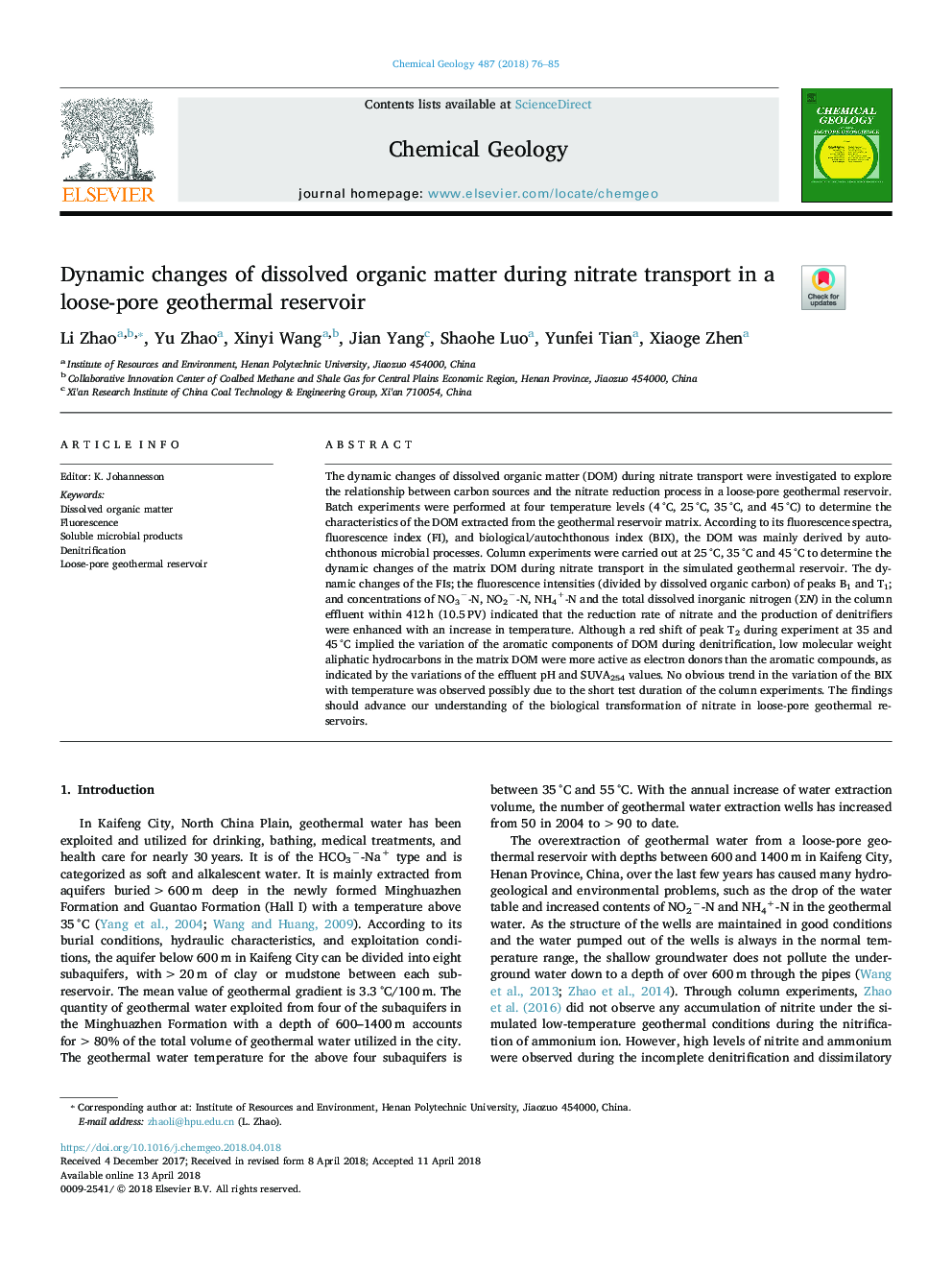| Article ID | Journal | Published Year | Pages | File Type |
|---|---|---|---|---|
| 8910225 | Chemical Geology | 2018 | 10 Pages |
Abstract
The dynamic changes of dissolved organic matter (DOM) during nitrate transport were investigated to explore the relationship between carbon sources and the nitrate reduction process in a loose-pore geothermal reservoir. Batch experiments were performed at four temperature levels (4â¯Â°C, 25â¯Â°C, 35â¯Â°C, and 45â¯Â°C) to determine the characteristics of the DOM extracted from the geothermal reservoir matrix. According to its fluorescence spectra, fluorescence index (FI), and biological/autochthonous index (BIX), the DOM was mainly derived by autochthonous microbial processes. Column experiments were carried out at 25â¯Â°C, 35â¯Â°C and 45â¯Â°C to determine the dynamic changes of the matrix DOM during nitrate transport in the simulated geothermal reservoir. The dynamic changes of the FIs; the fluorescence intensities (divided by dissolved organic carbon) of peaks B1 and T1; and concentrations of NO3â-N, NO2â-N, NH4+-N and the total dissolved inorganic nitrogen (âN) in the column effluent within 412â¯h (10.5â¯PV) indicated that the reduction rate of nitrate and the production of denitrifiers were enhanced with an increase in temperature. Although a red shift of peak T2 during experiment at 35 and 45â¯Â°C implied the variation of the aromatic components of DOM during denitrification, low molecular weight aliphatic hydrocarbons in the matrix DOM were more active as electron donors than the aromatic compounds, as indicated by the variations of the effluent pH and SUVA254 values. No obvious trend in the variation of the BIX with temperature was observed possibly due to the short test duration of the column experiments. The findings should advance our understanding of the biological transformation of nitrate in loose-pore geothermal reservoirs.
Related Topics
Physical Sciences and Engineering
Earth and Planetary Sciences
Geochemistry and Petrology
Authors
Li Zhao, Yu Zhao, Xinyi Wang, Jian Yang, Shaohe Luo, Yunfei Tian, Xiaoge Zhen,
